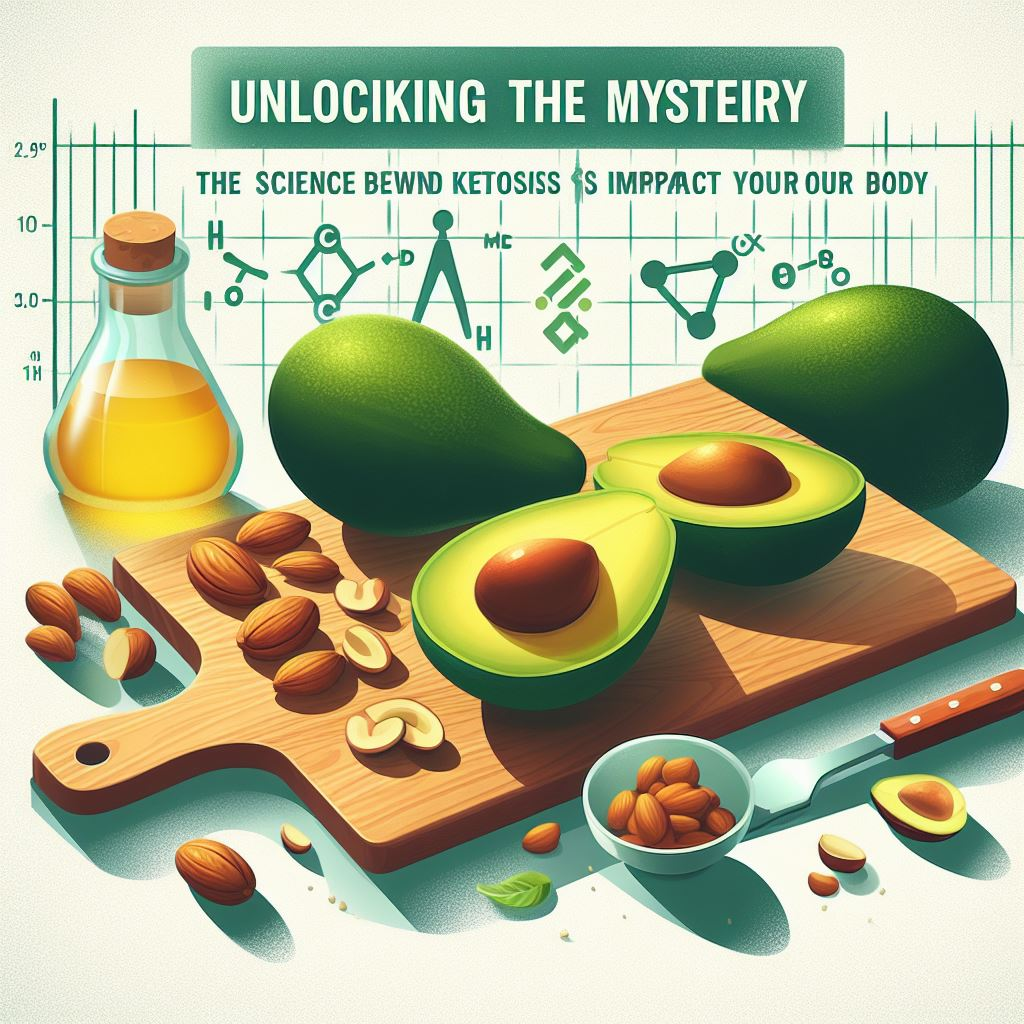Introduction:
In the world of nutrition, few trends have gained as much attention as the ketogenic diet. Advocates praise its ability to promote weight loss, enhance mental clarity, and improve overall health. But what exactly is happening in the body when we enter ketosis? In this article, we will delve into the intricate science behind ketosis and explore how it affects various aspects of our physiology.
Understanding Ketosis:
Ketosis is a metabolic state in which the body relies mainly on ketones for the bodies fuel instead of glucose. This ketogenic state is achieved by acutely lowering your carbohydrate intake, enforcing the body to switch from adopting glucose as its primary energy source to burning fat instead. When carbohydrates are restricted, the liver begins to break down fatty acids into ketone bodies, which can be used by the brain and other tissues for energy.
The Role of Insulin:
To understand ketosis, it is essential to grasp the role of insulin, the hormone responsible for regulating blood sugar levels. When we consume carbohydrates, they are broken down into glucose, causing a spike in blood sugar levels. In response, the pancreas releases insulin to shuttle glucose into cells for energy or storage. However, when carbohydrate intake is limited, insulin levels decrease, signalling the body to start burning stored fat for fuel.
Buy Top Quality Meats Online

Adapting to Ketosis:
The transition into ketosis can vary from person to person, with factors such as carb restriction, metabolic rate, and activity level influencing the speed of adaptation. Initially, some individuals may experience symptoms known as the “keto flu,” including fatigue, headaches, and irritability, as the body adjusts to using ketones for energy. However, these symptoms typically subside within a week as the body becomes more efficient at burning fat.
Benefits of Ketosis:
Beyond weight loss, ketosis offers a myriad of potential health benefits. Research suggests that ketogenic diets may improve insulin sensitivity, reduce inflammation, and even protect against certain neurodegenerative diseases. Additionally, ketones have been shown to provide a more stable and sustained source of energy compared to glucose, leading to improved mental clarity and focus for some individuals.

Effects on Body Composition:
One of the most appealing aspects of ketosis for many people is its ability to promote fat loss while preserving lean muscle mass. When carbohydrates are limited, insulin levels remain low, allowing the body to access stored fat more readily for fuel. This can lead to accelerated fat loss, particularly in stubborn areas like the abdomen.
Conclusion:
In conclusion, the science behind ketosis reveals a fascinating interplay of metabolic processes that profoundly impact our bodies. By understanding how ketosis works and its effects on physiology, individuals can make informed choices about incorporating ketogenic principles into their lifestyle. Whether your goal is weight loss, improved health, or enhanced cognitive function, harnessing the power of ketosis may offer a promising pathway to achieving your objectives.
USEFUL LINKS
What to know about the keto diet from experts at KU Medical University of Kansas Medical Center
The Science Behind Ketosis, and Why it Makes us Lose Weight Boostball
The Science Behind Ketogenic Diets, Or Why We Get Fat Forbes
YouTube Video – THE KETO DIET – EXPLAINED WITH SCIENCE

LATEST POST
- The Keto Diet and Gout: Is It Safe for Past Sufferers?
- Keto-Friendly Curried Chicken and Vegetable Soup: A Warm Delight for Cold Winter Days
- Perfect Keto Scrambled Eggs: A Versatile Delight for Your Low-Carb Lifestyle
- Keto-Friendly Ham, Mushroom & Spinach Frittata: A Savory Delight for Low-Carb Enthusiasts
- Unlocking the Mystery: The Science Behind Ketosis and Its Impact on Your Body





